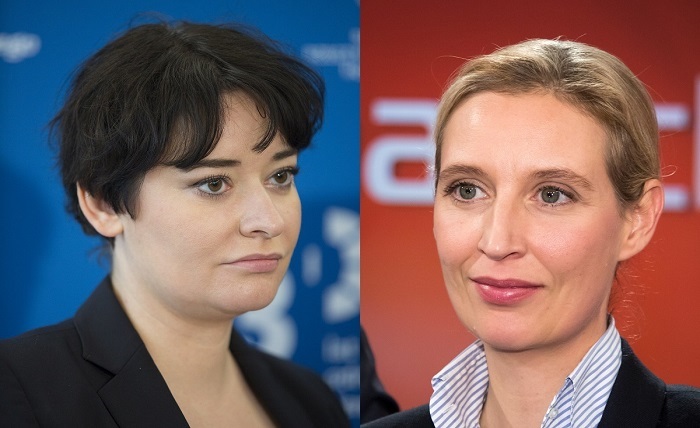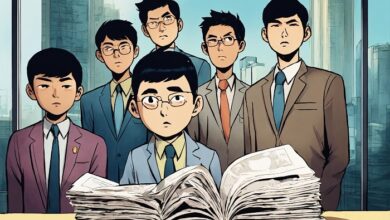Exploring WPolityce: A Comprehensive Guide

WPolityce, a term intricately woven into Polish politics, is the focal point of this comprehensive guide. Unveiling its historical roots, influential figures, and pressing contemporary issues, we delve deep into this subject to provide you with valuable insights.
Unearthing the Historical Significance
WPolityce in Polish politics signifies the complex tapestry of political events and decisions that have molded the nation. To grasp its full significance, let’s embark on a journey through Poland’s rich historical terrain.
- Poland’s Political Evolution: Poland’s political journey, from monarchies to the Polish Republic, is intertwined with WPolityce.
- Influence of Neighboring Powers: The proximity of formidable neighbors like Germany and Russia has significantly impacted WPolityce through historical conflicts and alliances.
- Resilience and Resurgence: The Solidarity movement, led by Lech Wałęsa, stands as a testament to Poland’s resilience, heralding the transition to democracy and leaving an indelible mark on WPolityce.
Key Players Shaping WPolityce
To fully comprehend Polish politics, we must acknowledge the influential individuals and parties that have steered its course. These key players have indelibly marked WPolityce.
1. Lech Wałęsa: Champion of Solidarity
Lech Wałęsa, a former electrician and labor leader, became the global symbol of resistance against communism. His leadership in the Solidarity movement transformed WPolityce.
2. Jarosław Kaczyński: The Conservative Force
Jarosław Kaczyński, leader of the Law and Justice Party (PiS), has been a dominant figure in modern Polish politics. His party’s conservative agenda significantly influences WPolityce.
3. Donald Tusk: A European Perspective
Donald Tusk, former Prime Minister of Poland and President of the European Council, brought a European perspective to WPolityce, fostering increased engagement with the European Union.
4. Andrzej Duda: The President’s Role
Andrzej Duda, Poland’s president, wields considerable influence over WPolityce, shaping both domestic and foreign policies.
Current Issues and Debates in WPolityce
The ever-evolving world of WPolityce is rife with contemporary issues and debates that demand our attention. These pressing matters in Polish politics continue to shape the nation’s trajectory.
1. Rule of Law and EU Relations: Poland’s relationship with the European Union has been contentious, with debates over the rule of law and judicial reforms straining EU-Poland relations, making it a central concern in WPolityce.
2. National Identity and Immigration: Questions of national identity and immigration are prominent, fueling debates about cultural preservation, integration, and the role of immigration in Polish society.
3. Economic Policies and Development: Economic policies, including tax reforms and economic development strategies, have a direct impact on the lives of Polish citizens, making them a critical component of WPolityce.
4. Security and Defense: Security concerns, both domestic and international, play a pivotal role in WPolityce, with Poland’s NATO membership and its relationship with neighboring countries shaping its defense policies.
5. Environmental Challenges: Environmental issues, such as climate change and air quality, are gaining prominence in WPolityce, with the government’s response becoming a significant part of political discourse.
The Media’s Role in Shaping WPolityce
The media landscape is a critical element in shaping public opinion and influencing political decisions in Poland. Understanding how information is disseminated and consumed in WPolityce is essential.
1. Television and News Outlets: Television remains a primary source of information for many Poles, with news outlets, both public and private, significantly influencing public perception of WPolityce.
2. Social Media and Online Platforms: The rise of social media has transformed the way WPolityce is discussed and debated, giving citizens a direct voice in political discourse.
3. Press Freedom and Censorship: Press freedom has been a contentious issue in Poland, with concerns about media independence and censorship raising questions about the role of the media in WPolityce.
The Future of WPolityce
As we look to the future, it is evident that WPolityce will continue to evolve and adapt to the changing political landscape. The future of Polish politics hinges on both domestic and international factors.
1. European Integration: Poland’s relationship with the European Union will remain a key factor in WPolityce, with the nation’s role within the EU and adherence to European values shaping its future.
2. Economic Growth and Innovation: Economic growth and innovation will play a vital role in WPolityce, with Poland’s ability to adapt to changing global economic trends influencing its political decisions.
3. Environmental Sustainability: Addressing environmental challenges and promoting sustainability will become increasingly important in WPolityce, with climate change mitigation and green policies at the forefront of political discourse.
4. Social and Cultural Dynamics: Evolving dynamics within Polish society, including generational shifts and cultural changes, will influence WPolityce, necessitating adaptability among politicians to remain relevant.
conclusion
, WPolityce represents the intricate world of Polish politics, encompassing its historical significance, influential figures, current issues, and the media’s role in shaping public perception. As Poland continues to evolve on the global stage, understanding WPolityce remains essential for citizens and observers alike, enabling active participation in the development of Polish politics and society.




